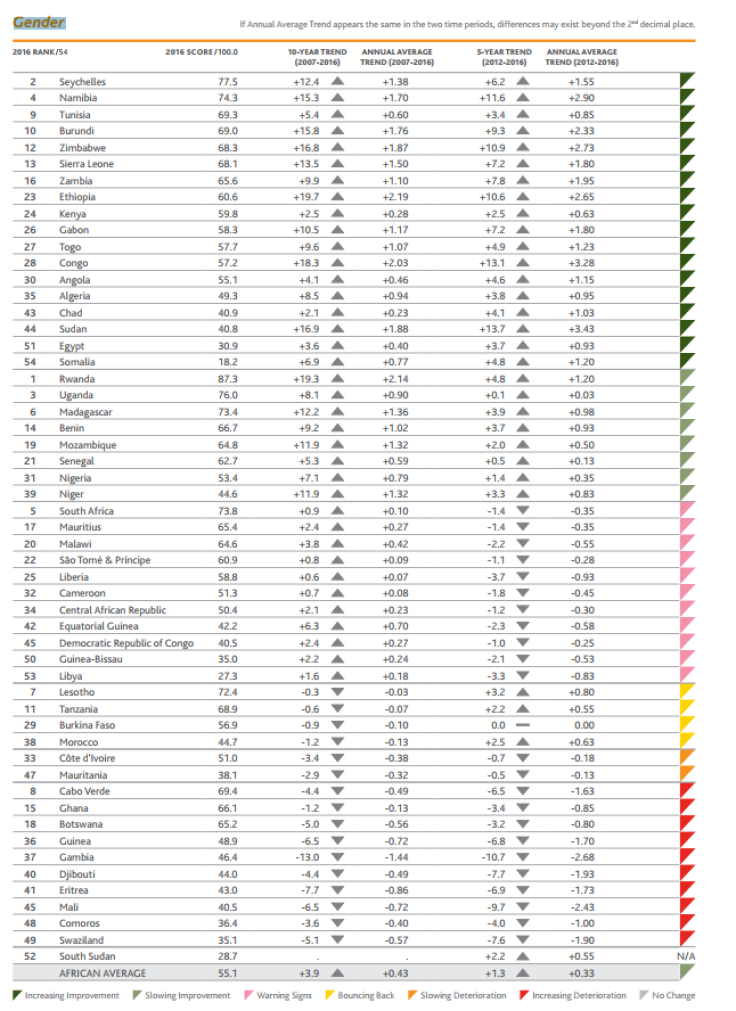Vera Songwe: Child marriage and genital mutilation still hinder African women's empowerment
IBTimes UK talks to head of UN Economic Commission for Africa as Index of African Governance released.
Africa is recognising the importance of promoting women's rights and their empowerment, but issues such as child marriage and female genital mutilation (FGM) are still a problem, Vera Songwe, Executive Secretary of the UN Economic Commission for Africa, has told IBTimes UK.
Songwe, the first woman to hold such position at the UN, made the comments to mark the launch of the 2017 Ibrahim Index of African Governance (IIAG) on Monday, 20 November.
The index, by the Mo Ibrahim Foundation, revealed that the continent's overall governance trajectory remains positive, although it has slowed down in recent years. The foundation is calling for vigilance on the continent's future.
According to the report, the five countries where gender-related issues have consistently worsened are Eritrea, Mali, Comoros, Swaziland and South Sudan. On the contrary, an overall and consistent improvement was registered in the Seychelles, Namibia, Tunisia, Burundi and Zimbabwe.
"Overall, the continent as a whole has decided to focus on the issue [of gender] a little bit more and has recognised that this is an important issue. But child marriage and FGM still need to be taken to account," Songwe said.
The Cameroonian economist, named by Forbes as one of the "20 Young Power Women in Africa" in 2013, urged African countries to focus on agricultural productivity, which remains an important aspect in rural communities.
"We know that infrastructure is essential, but improvement in agricultural productivity has a much higher rate of return in terms of reducing poverty," she said.
The report found that the rural sector deteriorated over the previous five years, a phenomenon that could "threaten recent progress in this key area for the continent's sustainable growth and wealth-creating potential".
Songwe added: "The rural development index is not doing so well and we know that [when that happens] women suffer in particular. More work needs to be done to ensure women have more economic empowerment and access to economic opportunities and in particular to the agricultural sector.
"There are some countries that are doing more than other. Rwanda is a country that has done well on the gender index, but there are also countries that are beginning to do well, such as Guinea," she concluded.
Mo Ibrahim Foundation indicators on gender:
"Looking at the recent trend in the last five years, Gender is still showing the largest improvement, yet progress looks to be slowing. Five out of eight underlying indicators are holding up further progress at sub-category level."
In Women's Political Empowerment, just over half the continent (28 countries) increase their pace of progress over the last five years, with the largest improvement seen in Algeria (+32.7). However, this indicator-level progress masks some concerning trends among the ten countries declining over a decade, as nine of these show increasing decline in the last five years, Egypt (-15.3) being the largest of these. In Women's Labour Force Participation 10 countries show signs of reversing a decade's decline, which along with seven countries that register 'increasing improvement' drive the average indicator-level improvement. Workplace Gender Equality registers the third largest indicator-level improvement in the IIAG since 2012, driven by 20 countries that display 'Increasing Improvement'. However, this masks the fact that almost half of the continent (26 countries) show no change over the two periods measured.

Women's Political Participation progress is slowing down, driven by declines in almost half the continent (26 countries) in recent years. Declines of more than -10.0 points in Benin, Cabo Verde, Central African Republic, Comoros, Lesotho, Malawi, Nigeria and Seychelles drive down the African average. Eight countries, including Tanzania and Senegal, though still improving over the decade register decline in the last five years, contributing to the average slowing progress.
In Gender Balance in Education, 38 countries manage to improve scores over the decade. However, eight of these; Ethiopia, Kenya, Malawi, Mauritius, Rwanda, Seychelles, Zambia and Zimbabwe decline in the last five years, contributing the 'Slowing Improvement' of the African average score.
Despite Laws on Violence against Women being on average the eighth largest boost to all indicators in the IIAG over the past 10 years, Africa's score has declined in the last five. While over the decade 28 countries improve, the same number of countries decline in the recent five years. 'Warning signs' emerge in 18 countries, which despite improving over 10 years have declined in the past five.
Gender Equality and Women in the Judiciary register an overall decline over the decade which worsens over the last five years. In the former, large and increasing declines in Guinea-Bissau, Eritrea, Mauritania and Mali outweigh the notable gains made in countries like Zimbabwe and Rwanda. In Women in the Judiciary, polarising performance is evident with 16 countries displaying 'Increasing Deterioration' and nine countries displaying 'Increasing Improvement', while over half of the continent (28 countries) remains static. Sudan displays a stand out performance, receiving the best possible score of 100.0 in 2016 having strengthened its scores at the fastest rate in both time periods.






